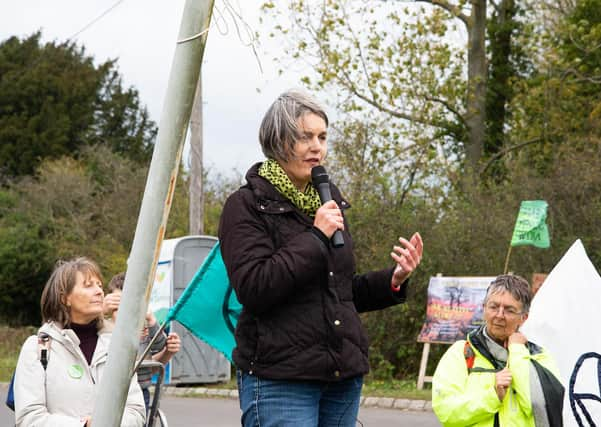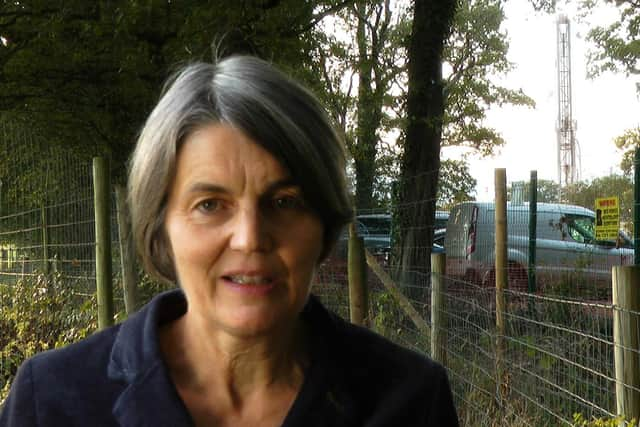High Court legal challenge to oil drilling near Gatwick is lost


Sarah Finch argued that when Surrey County Council granted permission for 20 years of oil production at the site near Horley, it failed to consider the environmental effects of carbon released when the oil taken from the site was used.
But a judge who considered evidence at the judicial review in November said the council had acted lawfully and rationally.
Advertisement
Hide AdAdvertisement
Hide AdUK Oil & Gas (UKOG) dubbed the ruling ‘a victory for law and common sense’, while Ms Finch said it showed how ‘out of touch’ the planning system is.


Mr Justice David Holgate concluded that, under the Environmental Impact Assessment (EIA) regulations, a council is not required to assess the climate impact of greenhouse gases emitted when the extracted oil is later burned.
“How can we have a zero emissions target if we don’t count the carbon emissions?,” said Ms Finch.
“Given the judge’s ruling that planning permission was lawfully granted because it was in line with national government policy, then clearly, that policy needs to be updated.
Advertisement
Hide AdAdvertisement
Hide Ad“It hasn’t been updated since before the net zero target was enacted and doesn’t reflect the fact that Parliament has declared a national climate emergency.”
A successful challenge would have had far-reaching implications on the need to assess all indirect carbon emissions of end products emanating from any development.
Aviation, manufacturing and handling of waste, for example, can all generate indirect carbon emissions.
Stephen Sanderson, chief executive of UKOG, Horse Hill Developments’ parent company, said: “One can only wonder why a comprehensively unsound claim with a clear political agenda was permitted so many bites at this legal cherry.
Advertisement
Hide AdAdvertisement
Hide Ad“Justice Holgate made it abundantly clear in his judgement that the courts are not responsible for making political, social, or economic choices.”
He added: “Oil use as a non-combusted industrial feedstock will remain necessary to manufacture key 21st-century materials during and post transition, as without such materials there will be no electric vehicles, green aviation or wind turbine blades.
“It must surely be preferable that such transitional fuel and vital feedstocks should come from domestic sources rather than those beyond our control and regulation.
“Production will thus continue at Horse Hill to ensure that each highly regulated barrel we produce is one less higher carbon footprint and less regulated barrel imported.
Advertisement
Hide AdAdvertisement
Hide Ad“Our indigenous barrel’s economic benefit will also remain in the UK rather than add to the UK’s balance of payments deficit.”
Surrey County Council’s barrister told the court neither the developer nor the council has any means of knowing whether the product is combusted in the UK or abroad.
Mr Justice Holgate ruled that, under the EIA regulations, both direct and indirect effects of a development must be addressed.
But he added: “In my judgment the scope of that obligation does not include the environmental effects of consumers using (in locations which are unknown and unrelated to the development site) an end product which will be made in a separate facility from materials to be supplied from the development being assessed.”
Advertisement
Hide AdAdvertisement
Hide AdThe council granted planning permission to Horse Hill Developments, a subsidiary of UKOG, in September 2019, just two months after making a climate emergency declaration.
Ms Finch’s solicitor Rowan Smith, from Leigh Day, said: “This exposes a major flaw in the planning system in this country, and proves that it is not fit for purpose in a net zero world.
“Our client is of course bitterly disappointed with this judgment, especially after such a long-standing campaign against oil development in Surrey, and is accordingly taking legal advice on grounds of appeal.”
Ms Finch, supported by the Weald Action Group, added: “I’d like to say a huge thank you to the many local people and organisations who supported this legal challenge.”
Her crowdfunder appeal raised more than £35,000 to cover legal costs.